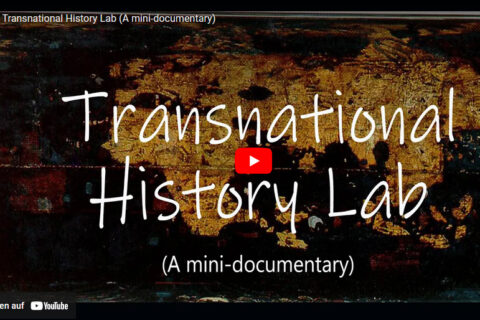Transnational history: Cross-border and interdisciplinary research
How can we write transnational history in a world in which science and technology are becoming increasingly relevant? The Transnational History Lab has looked at this question in more detail, and the researchers have prepared a documentary on their work.
Transnational history
The Covid-19 pandemic, war in Ukraine and the disruptions caused to supply chains as a result – many events do not only affect our own country. Resources, products, companies, organizations, activists, technologies, ideas and scientific findings constantly cross country borders. This affects both national and global affairs. Keyword: Transnational. How can we write transnational history in a world in which science and technology are becoming increasingly relevant? The Transnational History Lab has looked at this question in more detail.
The aim: To cover a wide range of topics, periods and various methodological approaches and academic disciplines to further the research field of transnational history.
The Transnational History Lab
International researchers from across the globe with different research interests came together at the Transnational History Lab to fully retreat into the lab and concentrate on developing and experimenting with ideas for a total of six days, taking the format of a winter school. Their research interests include international organizations, global histories of anti-nuclear power activism, internationalism and academic refugees, scientific and technological standards and setting standards.
The project was organized by Prof. Dr. Maria Rentetzi and Dr. Aske Hennelund Nielsen from the Chair of Science, Technology and Gender Studies at FAU and funded by the Volkswagen Foundation.
The Transnational History Lab – a documentary
More about the Chair of Science, Technology and Gender Studies
The Chair of Science, Technology and Gender Studies (STGS) at FAU takes a strongly interdisciplinary approach and is unique within the German academic system. Researchers at the Chair analyze the relationship between scientific knowledge, technological systems, and society but also would like to address the most important challenges of the contemporary world through a critical and gender perspective. They think across the traditional divide between the social sciences and humanities on one side and the natural sciences and engineering on the other.
The Chair’s research priorities include Gender Science Studies, nuclear history and science diplomacy.
Further information on the Chair